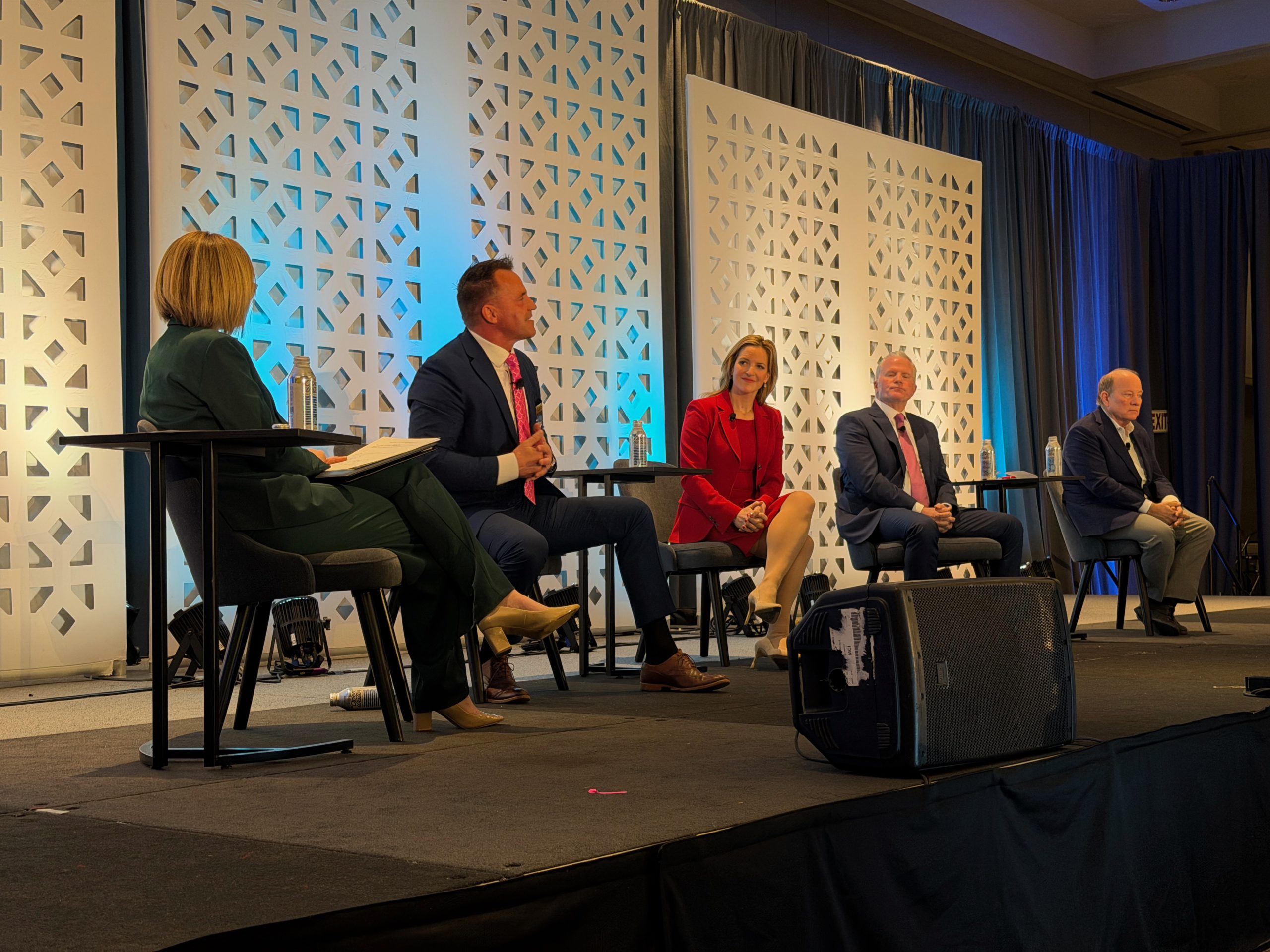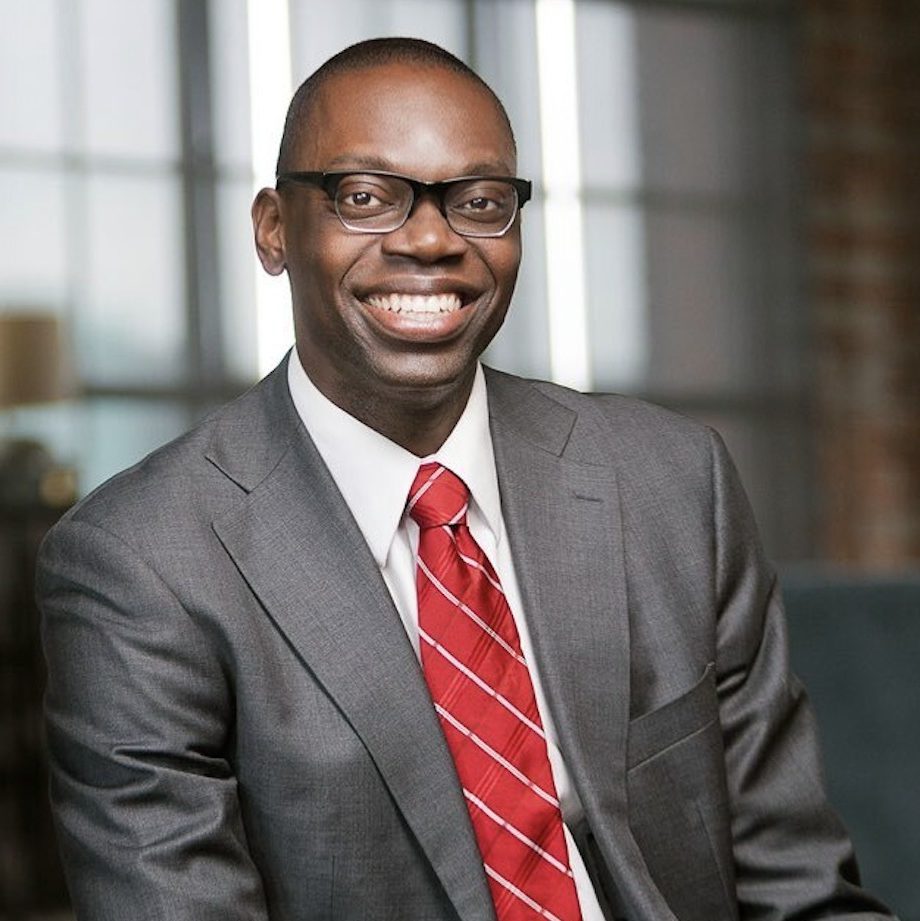Benson Q&A from Statewide S&R Committee
Earlier this fall (prior to the Oxford tragedy), MEA’s Statewide Screening & Recommending Committee asked Secretary of State Jocelyn Benson a variety of questions about education and labor issues in screening interviews prior to voting to continue her recommendation for re-election.
Here are some of her answers:
What are the biggest strengths of our current education system? What are our biggest challenges and what ideas do you have for addressing them?
Much like our democracy, the greatest strengths are the people. It’s truly a life of service, as you all know, to be an educator in our schools – the sacrifice and service you all make to improve our world better. Teachers and other school staff work every day to serve our kids and to help them grow.
The challenges are particularly in funding, especially equity. I support our governor’s work to really engage in funding our schools so much at the K through 12 level. But I also would say the challenge is – and I say this from my own experience – ensuring stakeholders are engaged, ensuring our parents are engaged, ensuring we have that sort of community involvement in support of schools, recognizing that they are a part of our community. I say all that to really also emphasize the parallels between that and our democracy.
I think if you’re making decisions, you need to engage the voices of people you serve, of the communities you serve. And I think really, when we look at some of the challenges facing public education today, if we had more educators making decisions, involved in the decisions at the highest level as I know our governor has worked to do, I think that keeps us very far along the path to really solving the challenges that we face.
Can you tell us some examples of how your office has had an impact on public school employees and students in your first term?
Making sure our young people and our educators are engaged in democracy has been the forefront of my work. I’m proud that during my tenure, we saw not just the highest turnout general election ever in our state’s history last November, we also saw the highest turnout August primary election ever. The heart of our success was really in the fact that we created ways particularly for young people, especially at colleges and universities, to engage in democracy and vote.
One of the things we want to continue to grow is mock elections in schools throughout our state. I know many of you have them, but mock elections have oftentimes been one of the best ways to prepare students to be voters.
We also improved outreach to help students be poll workers. We recruited over 30,000 election workers in advance of last year’s election, in part of working with the MEA and AFT to help Michigan to do that recruitment. And we’re very proud that a number of those poll workers were teachers, educators and a number of them were also high school and college students. Through that, we feel we provided not just a service to our democracy, but a service I hope to our educational community in connecting to democracy and making that civic engagement piece real – while helping to run efficient elections.
What are your views on the rules for absentee voting, ID requirements, ballot access and, more generally, voter participation? What steps are you taking to protect and expand access to voting?
I believe the mark of a healthy democracy and healthy society is measured by elections where we see high turnout and high security – and indeed, that is exactly what we’ve seen in the elections administered under my tenure as Secretary of State. Our November 2020 election was both the most secure in our state’s history and had the highest turnout in our state’s history. Of the 5.5 million people who voted, 3.3 million of those citizens voted absentee. Not only was there very little to no fraud, but in addition to that, we had signatures that were checked and citizens followed up with. If there was any sort of error or irregularity, there were efforts to identify whether it was fraud or whether it was simply just a mismatched signature. The vast majority of citizens returned their ballots on time to the drop boxes or with prepaid postage that we worked to provide. Citizens knew how to request absentee ballots because we mailed them that information. All that is to say that the security of our system, the current methods of identifying voters – whether they voted in person or absentee – works. Ballots were validated and counted – not only just counted, but counted in half the time that we had anticipated based on previous elections.
Part of the reason I’m running for re-election is to help continue to grow and invest in what’s working to ensure that we continue to keep our elections secure, continue to work with nearly 1,600 clerks, continue to educate all of our voters – including our newer, younger voters – on the rules, how they can ensure their ballots are received on time and knowing their options to vote and vote securely.
What is your position on Michigan’s current campaign finance law, including spending limits, PAC fundraising and so-called “soft” money in politics? What recommendations regarding the area of campaign finance would you make to the Legislature?
I believe very much in disclosure and transparency and I also believe our laws are in dire need of amending to further those goals. The first thing we need to do is to bring stakeholders to the table to have conversations about how to structure laws that will promote ethics in transparency in our government. I think one of the places we need to start is actually ensuring our lawmakers also reflect that transparency, including that they’re required to disclose their personal finances. We need greater transparency on the money behind our politics.
In addition to that, we have to look at the definition of campaign speech, which is very narrow under current law, and perhaps expand it to match what the federal law states regarding the time, place, and manner of speech being more of an indicator of whether it’s designed to influence elections, as opposed to whether the speech says, “Vote for, don’t vote for.”
As the chief election administrator, I’ve worked to implement – within the confines of the law — those transparency goals, but we are very limited in the current law.
The pandemic has changed many things, including how the public can do business at the secretary of state’s office. What are you doing to make the secretary of state office more user-friendly? Can you talk about the challenges you’ve faced and what still needs to be addressed?
If you have visited a Secretary of State branch office recently, you’ll see they operate very differently than they did just two years ago. When I took office, I saw hours-long waits, particularly in our busiest, urban offices – which affected both citizens and employees alike. Over the past several decades our offices and staff were cut by close to 50%, even though Michigan’s population and number of motorists increased.
We had a very clear capacity mismatch, so that’s what we really worked to solve.
First, we worked to reduce the reasons why people need to go to a branch office, to begin with. When I took office, 70% of our transactions were in branches, 30% were online or elsewhere. Now, we flipped that so that 60% of our transactions take place outside of branch offices, including at one of the over 150 new self-service stations we’ve put in in grocery stores across the state. And we’re going to continue to push in that direction.
Then in addition to that, when you go to a branch office, we have a new model which really just has started to catch its stride because of the backlog caused by the pandemic. Now you can schedule your visit ahead of time, online or by calling – or you can walk up to any office and either be seen or schedule another time to come back without waiting. We have a model in place that has eliminated the wait, ensures residents are able to be served, and has enabled our workers to get out on time because they now know based on the scheduled visits when they’re going to get out on any given day.
There are steps we need to continue to improve our offices, including increasing budgets to increase hours and staffing, and to add mobile offices around the state that would enable us to go to community centers, to senior centers, to other places where people are so that they don’t have to go to a branch office for service. If we add those pieces, we’ll tip the scales to have much more supply of service than demand of our citizens so anyone at any point can access our services however is convenient for them. Then we enter a new era of department customer service.



